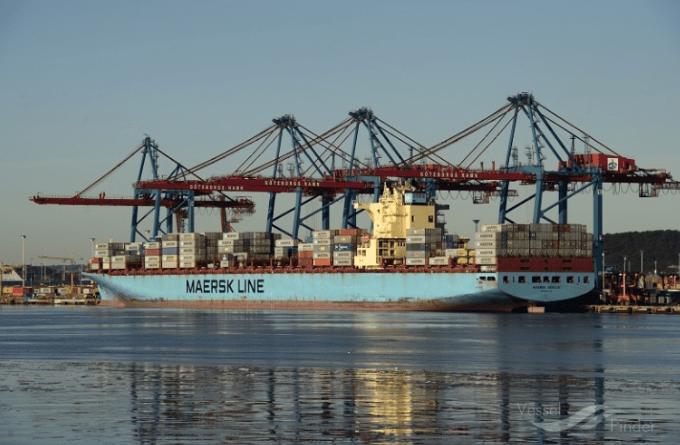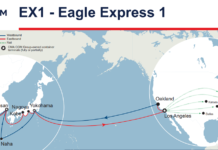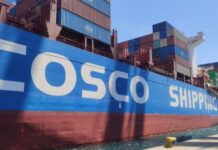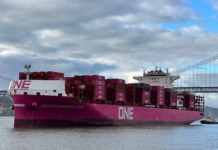
Maersk has decided to redesign its ocean network in West & Central Asia, which connects countries including India, Bangladesh, Sri Lanka, Pakistan, United Arab Emirates (UAE) and Saudi Arabia to the world.
The Danish carrier will launch the new ME4 service, which will offer direct coverage between Doha and North Europe. The new product is expected to improve speed to market by up to five days and by up to six days from the Port of Jebel Ali to West Africa.
Additionally, the ME3 service connecting fresh produce exporters from Pakistan to Russia will see an improvement in its transit times. “The decreased transit times will further reduce wastage of the fresh produce by maintaining its integrity through end-to-end cold chain logistics offered by Maersk in Pakistan,” noted the company.
Maersk has also announced that its ME7 service will connect South India’s lifestyle, retail and automotive manufacturing sector directly to Europe with the cargo flowing smoothly without getting affected by delays in case of congestions. The ME7 service will also provide a direct and regular rotation between the hubs of Colombo and Salalah.
“The changes in the network are primarily aimed at improving speed to market, providing higher predictability and offering more flexibility to customers’ supply chains,” pointed out Maersk in its statement.
Moreover, Maersk’s FI3 service will change from fortnightly to weekly giving frequent options for importers getting cargo from Far East into North India, while the Copegahen-based container line will commence the new FI4 service, that combines previous Jade Express and Chennai Express, connecting South East Asia with India and Pakistan on a single direct service.
“The unprecedented scale of operational challenges restricting supply during the pandemic and the strong demand surge in parallel led to significant bottlenecks, capacity issues and unforeseen delays across supply chains,” said Mads Skov-Hansen, Head of Liner Operations Cluster, Maersk West & Central Asia. “This prompted us to redesign our ocean network to overcome these challenges and make our customers’ supply chains more resilient.”
As a part of the network update, the ME6 service, as well as transhipment on AE1 at Colombo, will be discontinued. Customers will continue to have the option to connect their cargo on a full array of services calling West & Central Asia, according to the company.
“With our redesigned ocean network, we are not only providing our customers with predictability and resilience, but also greater speed to market allowing them optimise their inventories and operations to meet the surge in demand with a competitive edge,” commented Bhavan Vempati, Regional Head of Ocean Management, Maersk West & Central Asia.
The network changes will be implemented in a phased manner and will not affect the total deployed capacity in the global network, according to Maersk’s announcement.





